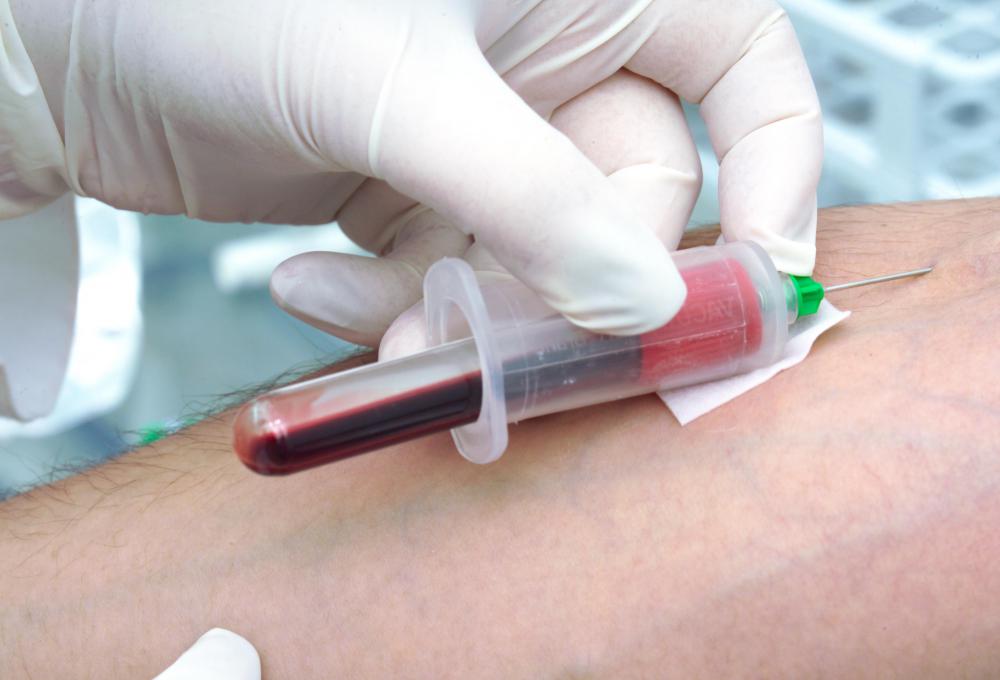At WiseGEEK, we're committed to delivering accurate, trustworthy information. Our expert-authored content is rigorously fact-checked and sourced from credible authorities. Discover how we uphold the highest standards in providing you with reliable knowledge.
How do I Become a Clinical Laboratory Assistant?
A clinical laboratory assistant, also known as a medical laboratory assistant, is a medical professional who has been trained to assist other laboratory personnel and physicians. Her responsibilities may include collecting and processing blood samples and other clinical specimens, regulating quality control of the laboratory equipment, and office duties — such as patient registration and tracking billing and insurance records. There are several paths that may enable an individual to become a clinical laboratory assistant, but most employers prefer to hire an applicant who has earned at least an associate's degree from a junior or community college. Many people can also enter the field with a clinical laboratory assistant certificate or degree from a vocational or technical school or hospital. Such programs are also available in the U.S. Armed Forces.
In order to become a clinical laboratory assistant, an individual should possess certain qualities and skills. Manual dexterity and good vision are essential to the tasks of the position, as are the abilities to work well under pressure and to be detail-oriented. Computer and organizational skills are also beneficial to an individual seeking a career path as a clinical or medical laboratory assistant.

If a person decides to become a clinical laboratory assistant, she must first earn a high school diploma. She may then search for an educational program that fits her needs. Medical and clinical laboratory assistant programs are accredited by the Accrediting Bureau of Health Education Schools (ABHES) and the Commission on Accreditation of Allied Health Education Programs (CAAHEP). Though an individual may become a clinical laboratory assistant through on-the-job training, earning a degree or certificate makes her more competitive in her job search. Some states require that those who work in laboratories be registered or certified.

Certificate programs that enable a student to become a clinical laboratory assistant may vary slightly in curriculum, but generally include courses in medical terminology, human biology, clinical laboratory techniques, laboratory specimen processing, and clinical phlebotomy. Once the student receives the diploma or certification, she may also wish to apply to be certified by a recognized professional association, such as American Medical Technologists. To obtain this professional certification, the applicant must meet certain qualifications, pay an application fee, and successfully pass an exam. An annual fee to maintain the certification is required thereafter, as are continuing education credits. A student may also choose to earn a bachelor's degree to become a clinical laboratory assistant.
AS FEATURED ON:
AS FEATURED ON:















Discuss this Article
Post your comments